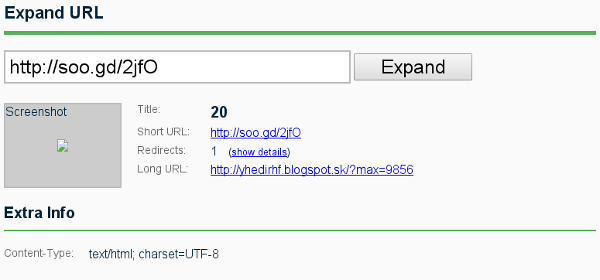I sign in to my facebook account & my feeds show so many of my friends posting “spam”. Well, I know it’s not you guys but some crappy app to which you have granted authorization “unknowingly” at some time. Does the picture below look familiar to you?

Many people are fooled into the trap by super-hero claims of being able to track visitors to your profile, telling you who loves you secretly, meaning of your name and many more such craps. Now if these are craps then why does facebook host them? No … facebook actually does not host them. These are hosted on other third party hosting services (most of the time which are free and difficult to track down).
####When do we say something’s fishy in a link?
If you find a link such as “http://iamaspammer.andillhackyourpc.com”, are you going to click? I guess the answer is no. But if the spammer masks his original address as in the picture above you won’t really bother checking. If you see the post coming from a friend you know, you might believe if he/she clicked it must be safe … and I’m sure you will click too. There you go … Welcome to the network of infected facebook accounts.
Am I just going to make a lot of gibberish here or give a solution? Héhé! Of course, I love you folks. Here’s what you should do before clicking anything that does not end with ‘facebook.com’. The address you see in the picture above is a shortened URL. You need to expand it. Longurl.org provides such a facility. Let’s try the link we see in the picture above.

You see http://soo.gd/2jfO actually points to http://yhedirhf.blogspot.sk/?max=9856. Does it look trustworthy? I leave the decision to you now …
You may also use urlvoid.com to check if a URL directly links to some malware.